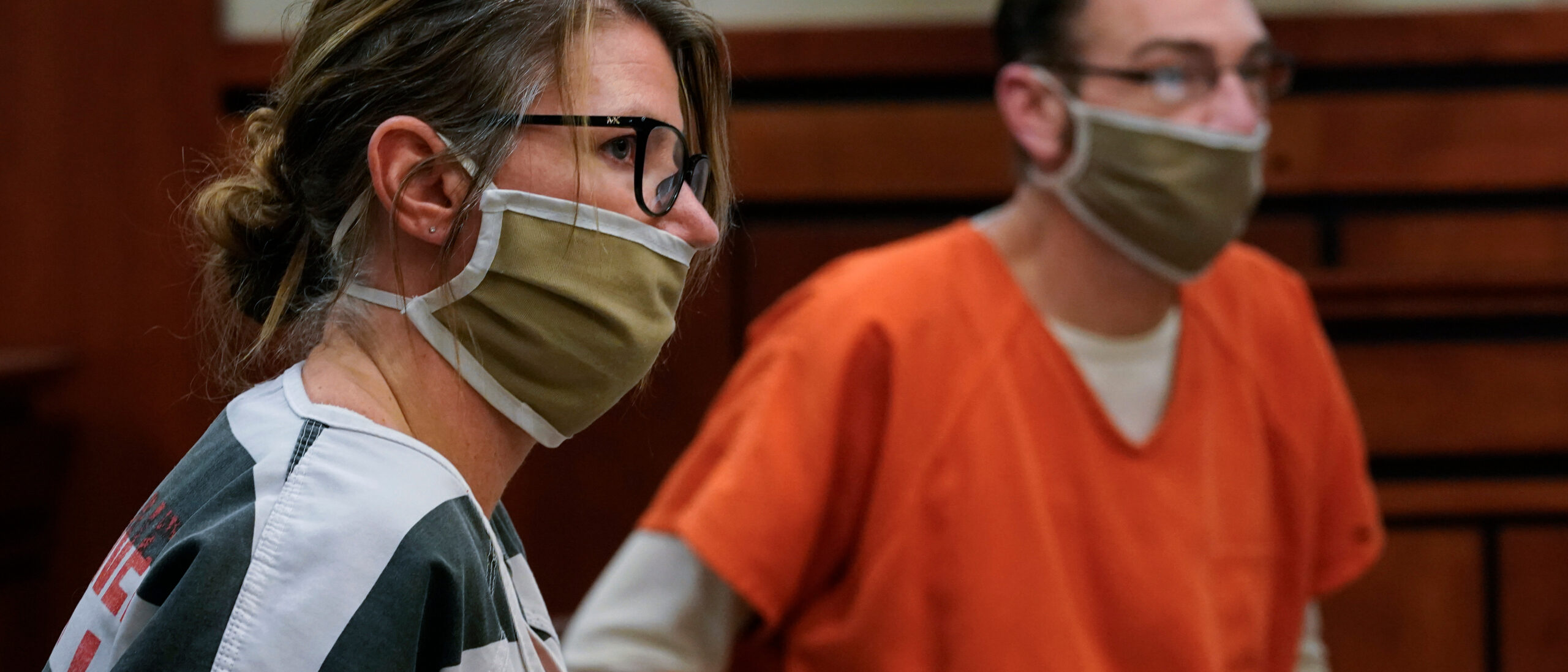In a landmark case that has drawn widespread attention, James and Jennifer Crumbley, parents of Ethan Crumbley, the teenager who fatally shot four students at a Michigan high school, have been sentenced to prison. Each will serve 10 to 15 years after being convicted of involuntary manslaughter. The sentencing comes as a culmination of a highly publicized trial that scrutinized the parents’ role in the tragic events of 2021.
The sentencing hearing, which took place on Tuesday, saw emotional testimonies from the parents of the victims, underscoring the devastating impact of the shooting. Prosecutors had pushed for a lengthier sentence than the recommended seven years, citing the severity of the offense and the parents’ failure to intervene despite clear signs of their son’s deteriorating mental health.
Judge Cheryl Matthews emphasized the need for deterrence and accountability, stating that the extended sentence reflects the parents’ negligence in preventing the attack. Despite acknowledging that the parents were not expected to possess psychic abilities, the judge stressed that they had repeatedly ignored opportunities to avert the tragedy.
During the hearing, prosecutors highlighted the parents’ actions, including purchasing the gun used in the attack and disregarding warning signs of their son’s mental health crisis. James Crumbley, in particular, was accused of showing a “total lack of remorse,” with prosecutors alleging that he made death threats against the lead prosecutor in the case.
In contrast, the defense argued that there was no evidence James Crumbley was aware of his son’s intentions and emphasized the remorse expressed by both parents. Jennifer Crumbley addressed the court, expressing her apologies to the families affected by the tragedy.
The case has sparked broader discussions about parental responsibility and school safety. The Crumbleys’ decision to leave a school meeting about their son’s concerning behavior and allow him to return to class with access to the firearm has raised questions about the adequacy of existing protocols for identifying and addressing potential threats in educational settings.
While the sentencing marks a form of closure for the families impacted by the shooting, it also serves as a reminder of the need for comprehensive measures to prevent similar tragedies in the future. As communities grapple with the aftermath of the incident, attention has turned to systemic reforms aimed at enhancing mental health support, firearm safety, and school security protocols.
